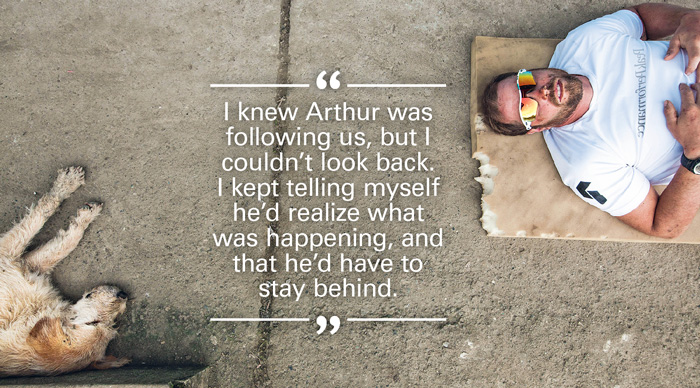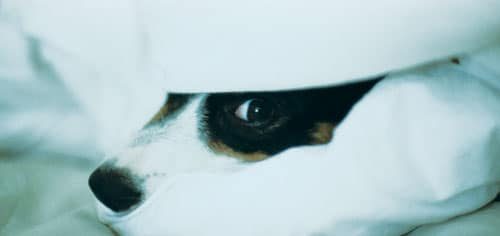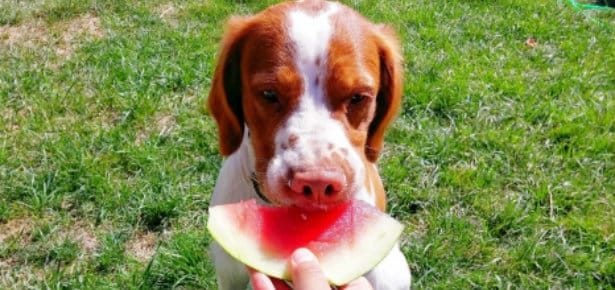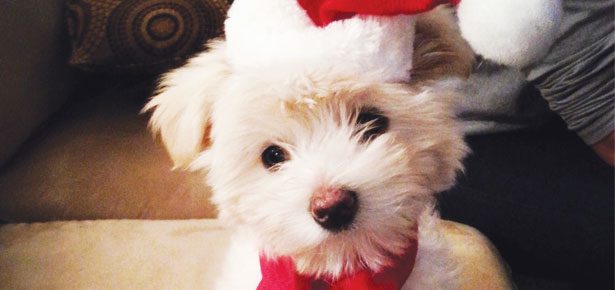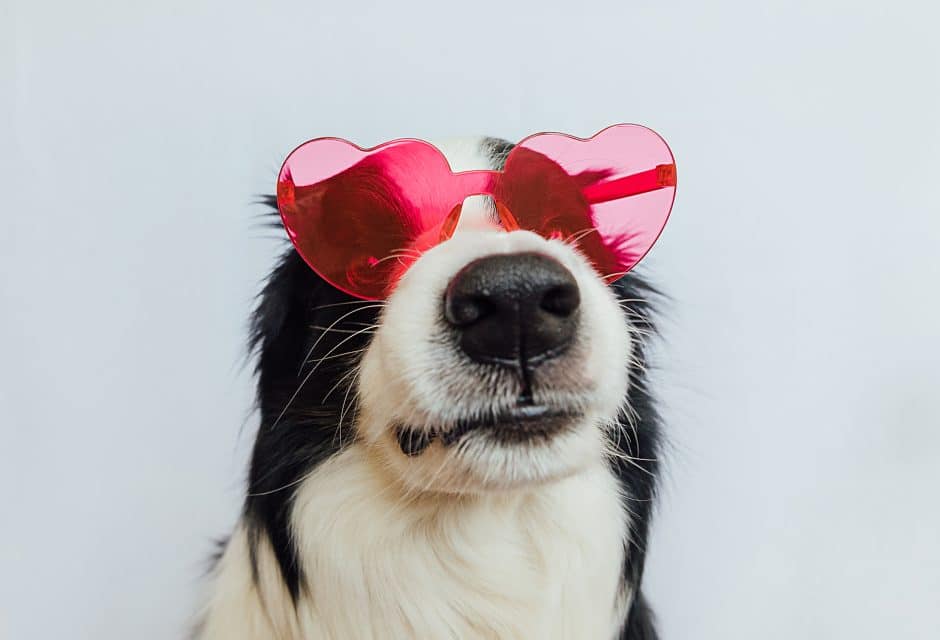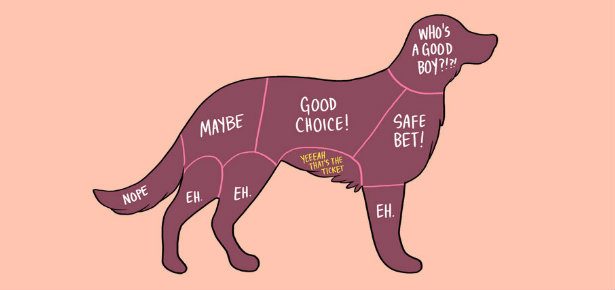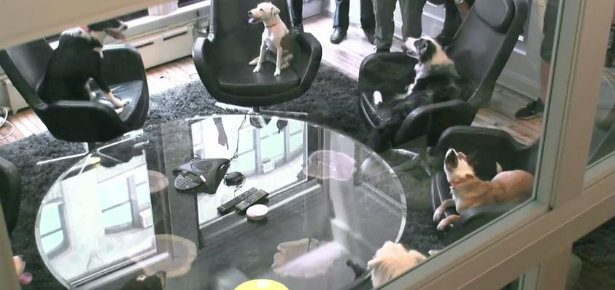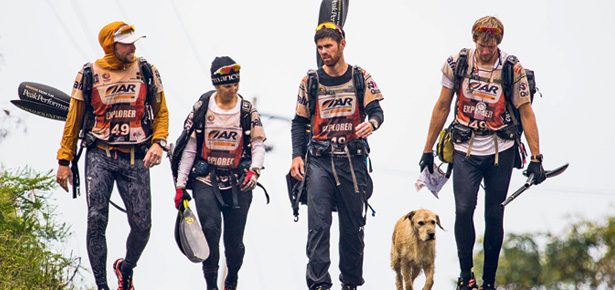
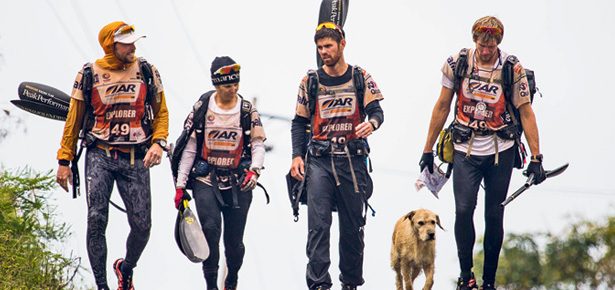
Whatever It Takes
This incredible journey through the jungle has captured the hearts of readers around the world
When you're racing 700 kilometers through the jungles and mountains of South America, the last thing you need is a stray dog tagging along. But that's exactly what happened to Mikael Lindnord, captain of a Swedish adventure racing team, when he threw a scruffy but dignified mongrel a meatball one afternoon.
Arthur the loveable stray followed Mikael and his team across more than 180 kilometers of the toughest terrain on earth to find a home. Their incredible journey through the jungle has captured the hearts of readers around the world.
“You can’t bring the dog.”
Even though it was dark, I could see that the race organizer was looking me hard in the eye as he said it. Though I’d known deep down for the last hour that he was going to say this, still as I looked back at him my mind was in turmoil.
Part of me wanted to scream: “He’s not ‘the dog,’ he’s Arthur. He needs me, I’m his only hope.” Another part of me, looking around at the concerned expressions on everyone’s faces, knew that it was crazy, insane, mad, to be thinking about a stray dog when there was so much at stake for us.
We were headed for at least fourteen hours of kayaking, often through difficult waters. Simon had only just recovered from severe dehydration. We would need all our resources to pull ourselves through this next stage. The last thing we should hamper ourselves with was a wounded, sick, and exhausted dog. Kayaking would be tough enough with all the changes of tide and the sandbanks blocking our routes.
I looked at Karen, who looked like what she was: one of the toughest athletes in the world. She looked utterly focused on the gear for this next stage of the race. It was hard to remember that this was the same person who gave her share of our last bag of food to a hungry dog in the jungle.
Staffan, too, was eyeing up his kit, already—I knew—mentally in the boat and planning his routes down the rapids. Simon, toughing it out, and obviously determined to get back in the race, just looked at me, waiting for my decision.
And then I looked down. The terrible wound in the middle of Arthur’s back seemed if anything to have got darker and bigger. Caked in mud and trembling slightly, Arthur was in a bad way. But his gaze was firm and strong as he looked up at me unwaveringly and trustingly.
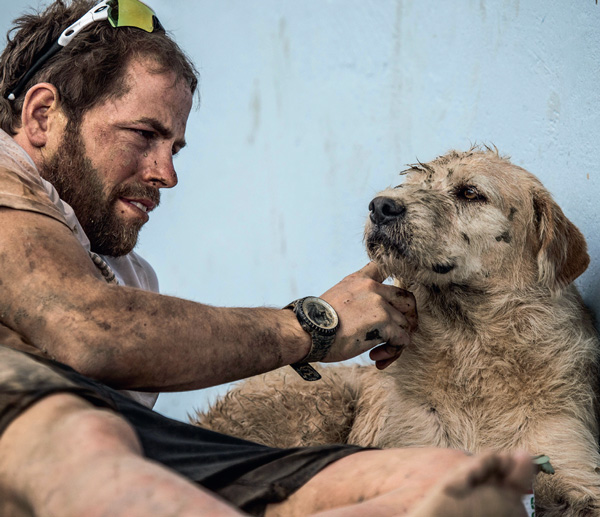
I seemed to be looking at him forever. I must have forgotten to blink, because I could feel a pricking in my eyes. I knew for certain that it was dangerous as well as damaging to us to consider taking him any further. Miles and miles back we had tried to tell him to go home for his own good. But Arthur had steadfastly ignored all our gesticulations and encouragements. Whatever happened, he was determined to come with us.
I bent down to him and put my hand on his head. “What shall we do, my friend?” I said to him under my breath. “What shall we do?”
Arthur started to whimper, just a little whimper to start with, and then when I couldn’t say anything more, he started to give a little whine in between the whimpers. I put my head nearer to his and said again, “What shall we do? I don’t know, I don’t know.”
I felt sick, as if I were contemplating the greatest betrayal of my life. I looked at the others and the race organizers.
I swallowed hard and stood up. “I understand,” I said. “Of course. I understand. He’ll find his way back somehow. He will. Dogs are clever like that, aren’t they?” I looked around at the staring faces, desperate for reassurance. One by one they nodded, but none of them quite met my eye.
“We must go,” said Staffan. “The tide’s right, and we can have a good start if we get going straight away.”
We gathered up our paddles and our packs and started to walk towards the bridge where the kayaks were waiting for us. … I didn’t look at anybody. I didn’t say anything. There wasn’t anything to say. I walked with the others to the boats, hardly aware of putting one foot in front of the other. I knew Arthur was following us, but I couldn’t look back. I kept telling myself he’d realize what was happening, and that he’d have to stay behind. It was hopeless. I’d never see him again. …
One by one we got into the kayaks. … Simon was in front and getting ready to paddle as we pushed off. By now there were lots more people on the bridge and on the bank. We could hear a murmur of voices as we balanced ourselves in the kayak. I told myself not to look back. There was no point. Must not look back.
As I gave a strong pull on the paddle, I felt a hard knot in my stomach. I could hardly see the water beside me; I could hardly see anything.
Then I heard a splash. There was a gasp from the crowd standing on the bridge. I could hear more murmurings.… Still I pulled hard on the paddle, keeping time with Simon in front of me.
We were starting to lose ground to the others in front. I knew we weren’t going nearly as quickly as we should be and that we would lose yet more valuable time if we didn’t increase our pace. But still, even as I pushed hard against the resistance of the water, every inch of me was listening for what was happening behind.
There was another splash. I looked round. Arthur, his big head only just above the waterline, was only a few feet behind us, paddling as fast as he could. I knew the water was nearly freezing, and I knew from seeing him in the river the day before that Arthur wasn’t a good swimmer. But still, he was now only a couple of feet behind the boat.
When I pulled once more on my paddle, our boat drew away again, further ahead of Arthur. As I looked back at him he seemed to put in another ferocious effort to speed up.
Karen and Staffan’s boat was now much further ahead.
I gave another pull on the paddle and we made up a bit more ground on them. I turned back to see that Arthur had fallen further behind. His paws were moving more slowly now, and his head was a little deeper in the water. But as the water churned about us, I could see that still he was looking at me with an unwavering stare.
I found myself talking to myself, in the way that I usually only do if I’m in real danger. This is it, I told myself, this is it. If you do this, it’s for good. No matter how damaged he is, how sick, he will be yours and your responsibility. You can’t ever push him away from you. You must love him. You and he will be together forever if you do this. It’s for good.
“Stop, Simon,” I said. Simon stopped and looked round.
We slowed down. Once Arthur could see that he was getting nearer, he seemed to find strength from somewhere and, with a supreme effort, got to the side of the boat.
Putting my paddle down, I leaned over and put my hands into the water and around Arthur. With a huge effort, nearly unbalancing the boat as I did so, I pulled him up into the boat.
Excerpted from: The Dog Who Crossed the Jungle to Find a Home by Mikael Lindnord. Published September 2017 by Greystone Books. Reproduced and condensed with permission from the publisher.
Join the newsletter and never miss out on dog content again!
"*" indicates required fields
By clicking the arrow, you agree to our web Terms of Use and Privacy & Cookie Policy. Easy unsubscribe links are provided in every email.
